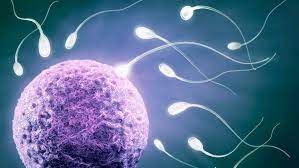Each and every one of the COVID-19 vaccines currently being inoculated in the European Union have proven their efficacy and safety. This has been confirmed by the exhaustive evaluations carried out by the European Medicines Agency (EMA, for its acronym in English), based on the documentation required of the manufacturers collected from the clinical trials that have had the participation of tens of thousands of volunteers around the world.
Despite this, the sera continue to arouse reluctance in part of the population considering that, due to the short period of time in which they have been developed, they are not safe. Within the wide spectrum of doubts that they generate, the vast majority based on ignorance and the dangerous misinformation that circulates at the speed of gunpowder , we find the fertility problems that vaccines could cause.

All the current scientific evidence that we have indicates without a doubt that vaccines against COVID-19 cannot affect the reproductive capacity of men and women . Not only is there no scientific evidence, but there is no theoretical reason to confirm this non-existent relationship.
Daniel Mataró , specialist in Gynecology and Obstetrics and member of the Board of the Spanish Fertility Society (SEF), explains in Expert Voices , created by the Ministry of Health to clarify doubts about the vaccination process against COVID-19, explains that «there is no evidence that vaccination increases the risk of infertility . «
It states that if the antibodies that our body generates in response to the inoculated vaccine affected fertility in any way, it would also be affected by the antibodies developed in response to natural infection. Something about which there is no evidence and there is also no evidence that vaccines increase the risk of loss during the first trimester, stillbirth or birth defects.
Edward Morris , president of the Royal College of Obstetricians and Gynecologist, explained the following through a statement: “We want to assure women that there is no evidence to suggest that COVID-19 vaccines will affect fertility . These claims are speculative and are not supported by any data. There is no biologically plausible mechanism by which current vaccines can cause any impact on fertility and no evidence has been reported that women who have been vaccinated have experienced any fertility problems. »
The Centers for Disease Control and Prevention of the United States (CDC, for its acronym in English) states : «There is currently no evidence that any vaccine, including COVID-19 vaccines, causes fertility problems in women or men.» «If you are trying to get pregnant, you do not need to avoid pregnancy after receiving the COVID-19 vaccine .»
An identical line to that stated by the UK public health system (NHS): “There is no evidence that COVID-19 vaccines have any effect on your chances of getting pregnant. It is not necessary to avoid pregnancy after receiving the vaccine ”.
Fuente: Consalud
 Blog de Fisioterapia Fisioterapia
Blog de Fisioterapia Fisioterapia



